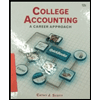Required Information P13-6 (Algo) Computing Comparative Financial Statements and ROA Profit Driver Ratios LO 13-3, 13-4. 13-5 [The following information applies to the questions displayed below.] The comparative financial statements for Chinook Company are below Income statement Sales revenue Cost of goods sold Gross profit Operating expenses and interest expense Pretax income Income tax Net income Balance sheet Cash Accounts receivable (net) Inventory Property and equipment (net) Total assets Current liabilities (no interest) Long-term liabilities (interest rate: 12%) Common stock ($5 par value, 6,780 shares outstanding) Retained earnings Total liabilities and stockholders' equity Year 2 Year 1 $ 284,000 115,500 $ 170,500 101,400 88,500 69,100 57,408 53,700 31,100 15,400 9,400 $ 21,700 $ 5,400 14,700 41,400 47,100 $108,600 $ 16,700 45,700 33,500 4,700 $ 18,780 $ 7,700 18,700 36,800 39,400 $ 102,600 $ 17,700 12,700 45,780 33,500 5,700 $ 108,600 $ 102,680 P13-6 Part 2 2. Compute return on assets, total asset turnover, and the net profit margin for Year 2 Note: Round your answers to 2 decimal places. Return on assets Total asset turnover Net profit margin % %
Required Information P13-6 (Algo) Computing Comparative Financial Statements and ROA Profit Driver Ratios LO 13-3, 13-4. 13-5 [The following information applies to the questions displayed below.] The comparative financial statements for Chinook Company are below Income statement Sales revenue Cost of goods sold Gross profit Operating expenses and interest expense Pretax income Income tax Net income Balance sheet Cash Accounts receivable (net) Inventory Property and equipment (net) Total assets Current liabilities (no interest) Long-term liabilities (interest rate: 12%) Common stock ($5 par value, 6,780 shares outstanding) Retained earnings Total liabilities and stockholders' equity Year 2 Year 1 $ 284,000 115,500 $ 170,500 101,400 88,500 69,100 57,408 53,700 31,100 15,400 9,400 $ 21,700 $ 5,400 14,700 41,400 47,100 $108,600 $ 16,700 45,700 33,500 4,700 $ 18,780 $ 7,700 18,700 36,800 39,400 $ 102,600 $ 17,700 12,700 45,780 33,500 5,700 $ 108,600 $ 102,680 P13-6 Part 2 2. Compute return on assets, total asset turnover, and the net profit margin for Year 2 Note: Round your answers to 2 decimal places. Return on assets Total asset turnover Net profit margin % %
Chapter10: Inventory
Section: Chapter Questions
Problem 7PA: Use the weighted-average (AVG) cost allocation method, with perpetual inventory updating, to...
Related questions
Question
![Required Information
P13-6 (Algo) Computing Comparative Financial Statements and ROA Profit Driver Ratios LO 13-3, 13-4.
13-5
[The following information applies to the questions displayed below.]
The comparative financial statements for Chinook Company are below
Income statement
Sales revenue
Cost of goods sold
Gross profit
Operating expenses and interest expense
Pretax income
Income tax
Net income
Balance sheet
Cash
Accounts receivable (net)
Inventory
Property and equipment (net)
Total assets
Current liabilities (no interest)
Long-term liabilities (interest rate: 12%)
Common stock ($5 par value, 6,780 shares outstanding)
Retained earnings
Total liabilities and stockholders' equity
Year 2
Year 1
$ 284,000
115,500
$ 170,500
101,400
88,500
69,100
57,408
53,700
31,100
15,400
9,400
$ 21,700
$ 5,400
14,700
41,400
47,100
$108,600
$ 16,700
45,700
33,500
4,700
$ 18,780
$ 7,700
18,700
36,800
39,400
$ 102,600
$ 17,700
12,700
45,780
33,500
5,700
$ 108,600
$ 102,680
P13-6 Part 2
2. Compute return on assets, total asset turnover, and the net profit margin for Year 2
Note: Round your answers to 2 decimal places.
Return on assets
Total asset turnover
Net profit margin
%
%](/v2/_next/image?url=https%3A%2F%2Fcontent.bartleby.com%2Fqna-images%2Fquestion%2F6ba0e587-a052-4bea-ab4d-afeecfa845fe%2F9a3f2c1a-f22c-4673-b4c4-153fa8a0e666%2Fhuzhjo_processed.png&w=3840&q=75)
Transcribed Image Text:Required Information
P13-6 (Algo) Computing Comparative Financial Statements and ROA Profit Driver Ratios LO 13-3, 13-4.
13-5
[The following information applies to the questions displayed below.]
The comparative financial statements for Chinook Company are below
Income statement
Sales revenue
Cost of goods sold
Gross profit
Operating expenses and interest expense
Pretax income
Income tax
Net income
Balance sheet
Cash
Accounts receivable (net)
Inventory
Property and equipment (net)
Total assets
Current liabilities (no interest)
Long-term liabilities (interest rate: 12%)
Common stock ($5 par value, 6,780 shares outstanding)
Retained earnings
Total liabilities and stockholders' equity
Year 2
Year 1
$ 284,000
115,500
$ 170,500
101,400
88,500
69,100
57,408
53,700
31,100
15,400
9,400
$ 21,700
$ 5,400
14,700
41,400
47,100
$108,600
$ 16,700
45,700
33,500
4,700
$ 18,780
$ 7,700
18,700
36,800
39,400
$ 102,600
$ 17,700
12,700
45,780
33,500
5,700
$ 108,600
$ 102,680
P13-6 Part 2
2. Compute return on assets, total asset turnover, and the net profit margin for Year 2
Note: Round your answers to 2 decimal places.
Return on assets
Total asset turnover
Net profit margin
%
%
Expert Solution
This question has been solved!
Explore an expertly crafted, step-by-step solution for a thorough understanding of key concepts.
Step by step
Solved in 2 steps

Recommended textbooks for you

Principles of Accounting Volume 1
Accounting
ISBN:
9781947172685
Author:
OpenStax
Publisher:
OpenStax College

College Accounting (Book Only): A Career Approach
Accounting
ISBN:
9781305084087
Author:
Cathy J. Scott
Publisher:
Cengage Learning

Survey of Accounting (Accounting I)
Accounting
ISBN:
9781305961883
Author:
Carl Warren
Publisher:
Cengage Learning

Principles of Accounting Volume 1
Accounting
ISBN:
9781947172685
Author:
OpenStax
Publisher:
OpenStax College

College Accounting (Book Only): A Career Approach
Accounting
ISBN:
9781305084087
Author:
Cathy J. Scott
Publisher:
Cengage Learning

Survey of Accounting (Accounting I)
Accounting
ISBN:
9781305961883
Author:
Carl Warren
Publisher:
Cengage Learning

Financial Accounting: The Impact on Decision Make…
Accounting
ISBN:
9781305654174
Author:
Gary A. Porter, Curtis L. Norton
Publisher:
Cengage Learning

College Accounting (Book Only): A Career Approach
Accounting
ISBN:
9781337280570
Author:
Scott, Cathy J.
Publisher:
South-Western College Pub

Intermediate Accounting: Reporting And Analysis
Accounting
ISBN:
9781337788281
Author:
James M. Wahlen, Jefferson P. Jones, Donald Pagach
Publisher:
Cengage Learning